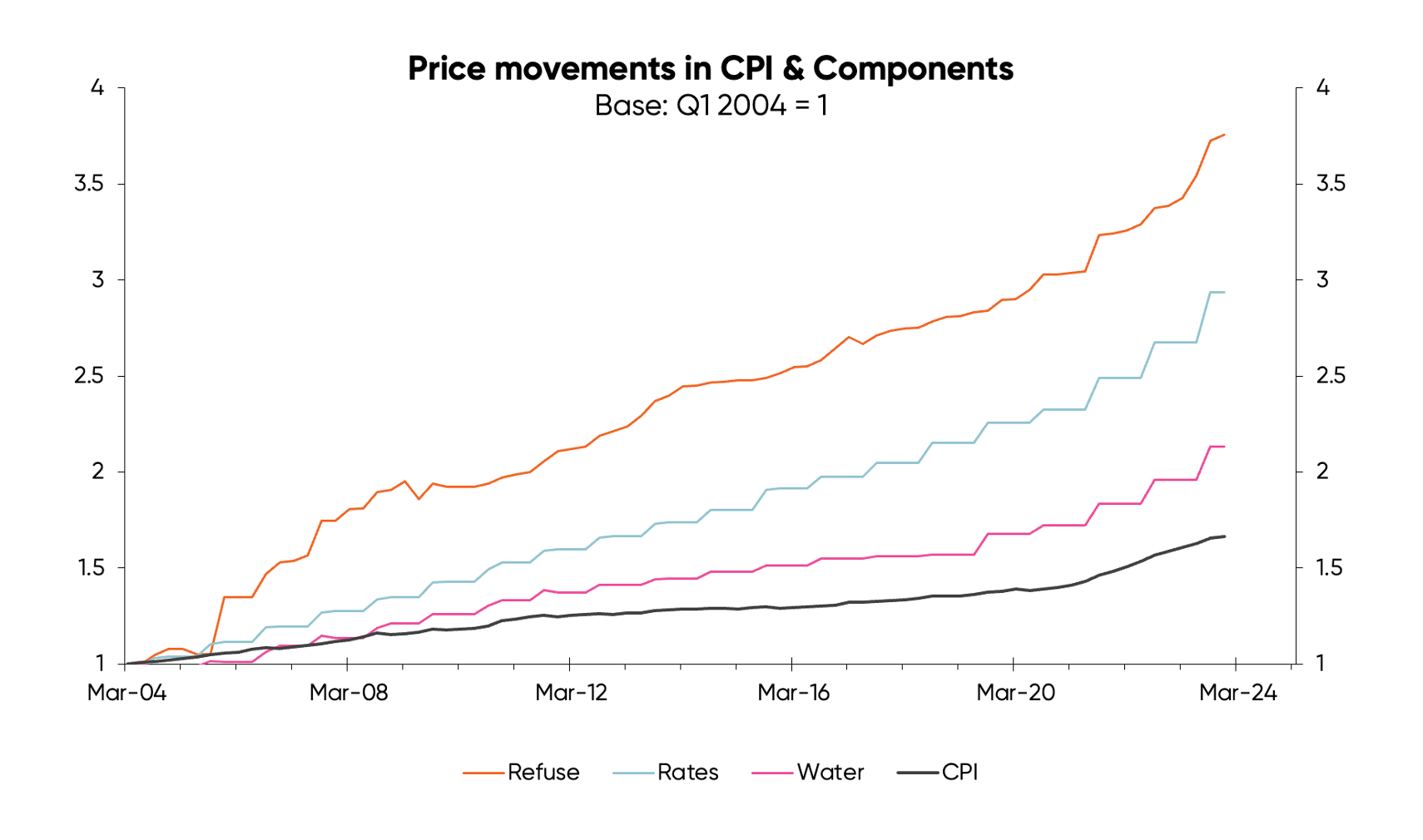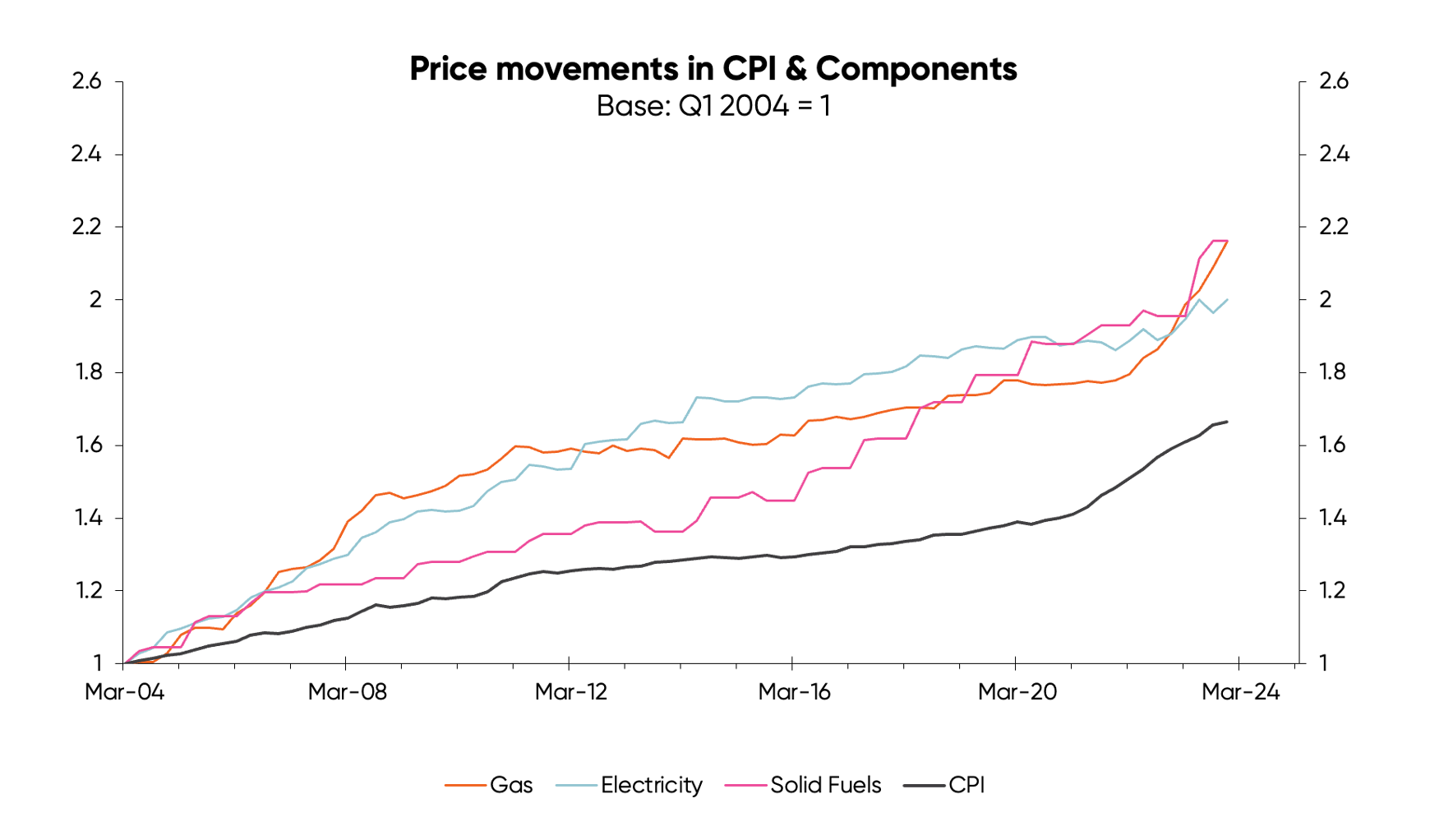Rodney's Ravings: The government's heavy hand in inflation woes


Guest Post by Rodney Dickens
Whenever the government plays a large part in the supply of something, the price of those goods and services tends to go up much more than prices in other areas.
In part, this reflects the fact that there’s usually less technological innovation and globalisation happening with these goods and services. This is in contrast to what you see with clothing and footwear prices, which have gone up little in the last 20 years thanks to globalisation, while communication prices have fallen thanks to technological advances.
Probably most of all, it reflects inefficiencies and limited accountability in the supply of government goods and services, the government’s use of some goods to raise taxes, and government interventions in some industries — like energy.
In the last 20 years, some of the largest increases in prices have been in areas the government controls, or has major influence over.
Sometimes this is because of increased taxes and other regulations, which for example has seen much higher increases in alcohol and tobacco prices than in prices in general.
It is especially notable in areas where local government has an influence, like council rates, water, and refuse collection.
The first chart shows how prices in these three areas have increased relative to prices in general, as measured by the Consumer Price Index (CPI). All four indices are set equal to one in the 2004 March quarter so the relative increases in prices are easy to see.
I suspect the much larger price increases for services linked to local government are partly due to their lack of accountability, and inefficiencies. Only when local government muck up so badly — like the Kaipara Council did with its sewage plant — will Central Government appoint a controller to fix things. Although there have been cases of councils temporarily losing the right to issue building consents.
We need politicians to target fixing local government inefficiency
The sceptic in me says that, even if this were to happen, it may go the same way as policies designed to fix housing affordability — like the Special Housing Areas National introduced (which had some impact) and Labour’s ill-fated KiwiBuild that is still struggling on — but any move to make councils more efficient is welcome.
There is also an element of the government’s hand in the larger price increases for energy-related goods than in prices in general — as shown in the second chart below.
Lack of accountability and inefficiency in government have contributed to larger increases in the cost of living than needed to be the case over the last 20 years.
The biggest factor in the current inflation problem is also government-related, being ineptitude by the Reserve Bank (as an entity set up by the government, and ultimately accountable to it).
The Reserve Bank’s reactionary decision-making, poor judgement and inaccurate forecasts allowed a wage-price spiral to develop that will take economic pain to fix. The Reserve Bank’s flaws will likely mean it overdoes the pain just as it ran pro-growth policies for too long even before it delivered excessive Covid stimulus. I’ll talk more on this as part of my next blog.
By Rodney Dickens, Managing Director, Strategic Risk Analysis Limited (www.sra.co.nz)
Receive updates on the housing market, interest rates and the economy. No spam, we promise.
The opinions expressed in this article should not be taken as financial advice, or a recommendation of any financial product. Squirrel shall not be liable or responsible for any information, omissions, or errors present. Any commentary provided are the personal views of the author and are not necessarily representative of the views and opinions of Squirrel. We recommend seeking professional investment and/or mortgage advice before taking any action.
To view our disclosure statements and other legal information, please visit our Legal Agreements page here.



